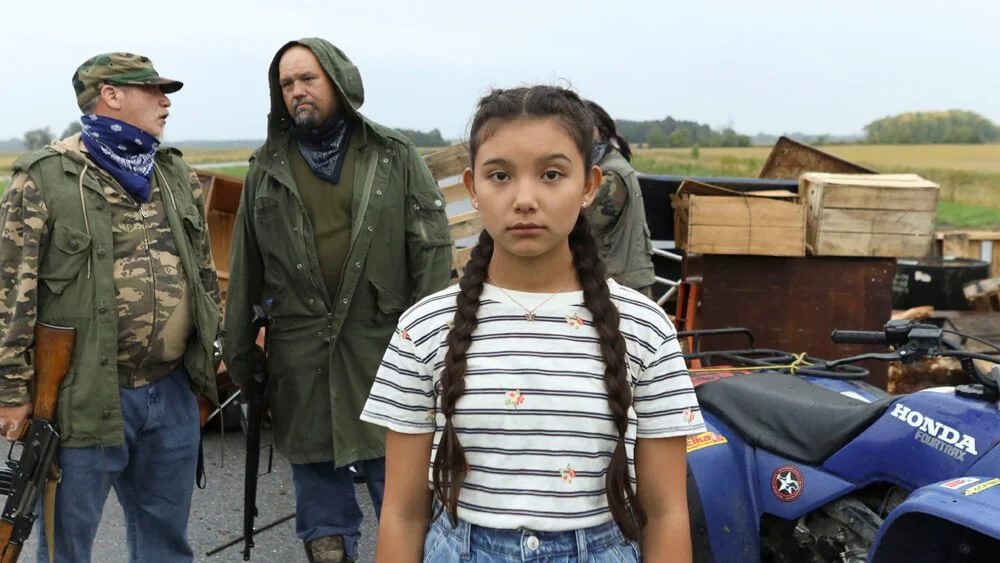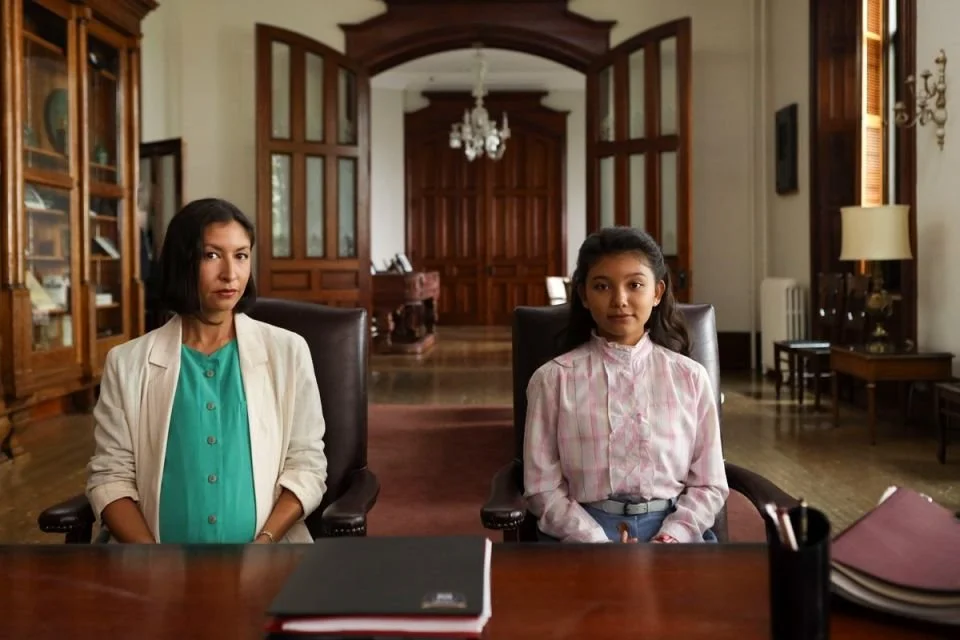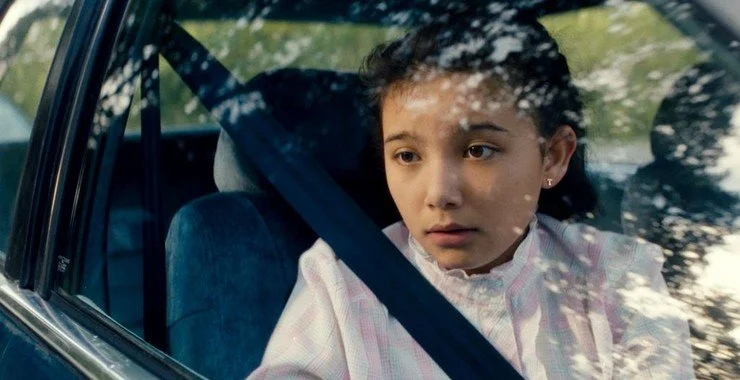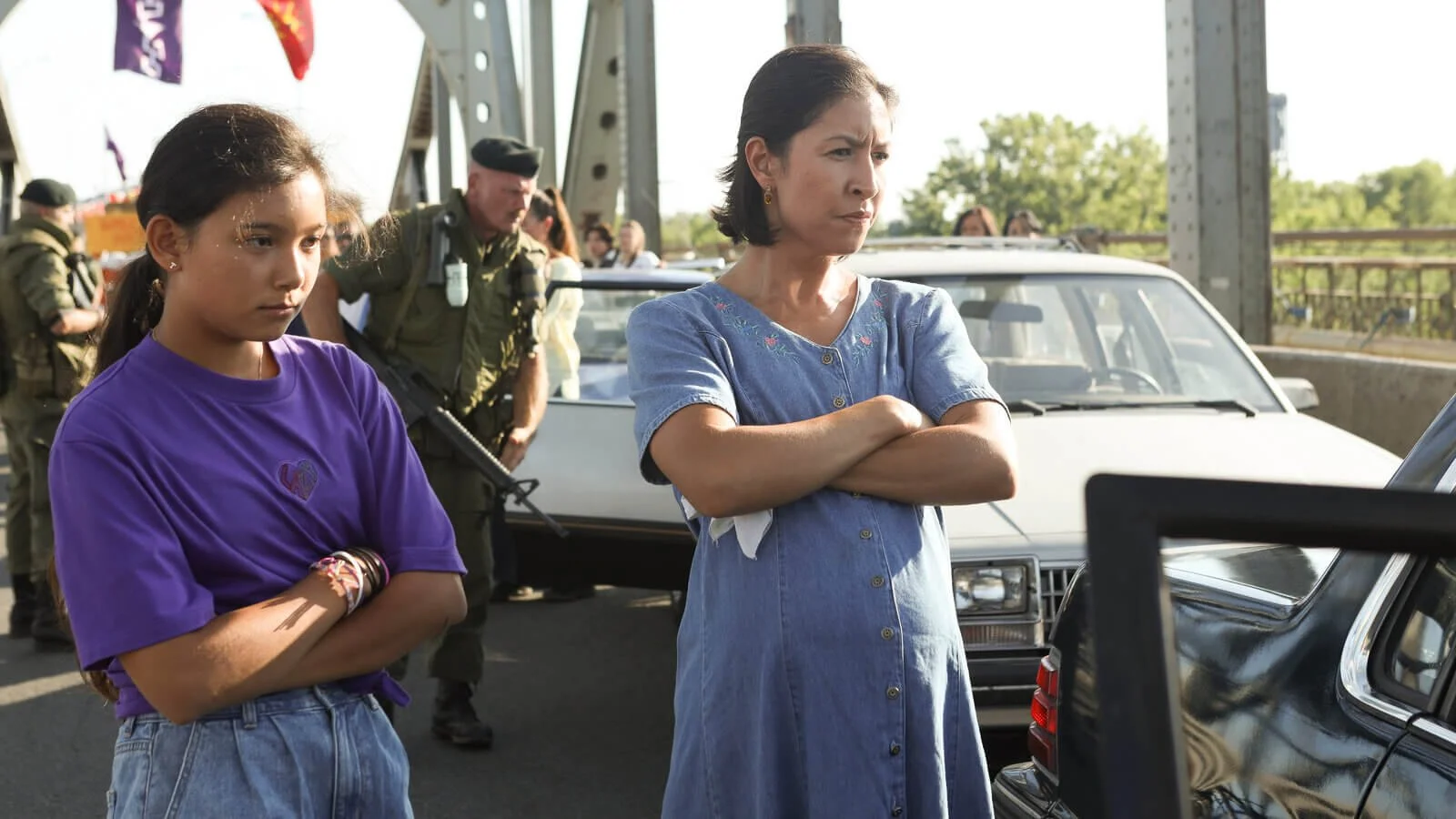Directed by: Tracey Deer
Written by: Tracey Deer and Meredith Vuchnich
Starring: Kiawentiio, Rainbow Dickerson, Joel Montgrand, Violah Beauvais, and Paulina Alexis
Runtime: 92 minutes
‘Beans’: Kiawentiio delivers a grown-up performance about growing up under perilous happenings
“Growing up is losing some illusions in order to acquire others.” – Virginia Woolf
Beans (Kiawentiio), 12, enjoys a content, supportive existence with her mom (Rainbow Dickerson), dad (Joel Montgrand), and younger sister, Ruby (Violah Beauvais), while living outside of Montreal. She’s a happy kid, and the year is 1990, a time when parents drew distinct, discernable lines between themselves and their children, and Beans and Ruby respect their mother and father’s firm lead. At the moment, Lily (Dickerson) and Kania’Tarilo (Montgrand) push Beans to pursue a private school education. Sure, it’s not this about-to-be-a-teenager’s passion, but the posh academy seems lovely, and her folks know best.
Director/co-writer Tracey Deer sets her debut narrative feature during one of the worst times for Beans, her family, and their local Mohawk community. The Oka Crisis – a real-life land dispute between the Oka, Quebec government and the Mohawk people, which lasted for two and a half months and included violence – quickly overshadowed any stresses that Beans assembled over admittance (and fitting in) to a new school.
Deer’s movie is semi-autobiographical, as she lived through that tumultuous, racially-divisive time as a child.
“It actually took a very, very long time to write the script. Figuring out what I wanted to say, but also having to revisit that time, revisit those emotions, I definitely hit a number of blocks,” Deer says during a Sept. 15, 2020 TIFF Originals interview.
She adds, “I do say that the film is inspired by, so it is not truly autobiographical. So, I do think of (Beans) as representative of not only my generation 30 years ago, but of kids today and the support, and the love, and the safety that they all need in order to thrive.”
The Oka Crisis included gun-pointed standoffs between Mohawk men versus police and also verbal confrontations with white locals. The clashes get downright ugly and hurtful. Deer includes a brutal moment where dozens of Quebecois Caucasians throw rocks at cars driven by First Nation families, including Lily, Beans, and Ruby.
(After watching the film a second time, this critic also saw a law enforcement officer joining in the sickening display.)
No doubt, Deer’s movie is a troubling, upsetting experience, and in addition to filming the said events from this volatile period, she adds news footage from 31 years ago. Hence, the audience grasps the reality of the on-screen happenings.
Deer explores the larger politics, but briefly. Instead, she tightens the story through the eyes of a 12-year-old girl, as Beans absorbs elevated prejudice first-hand. It changes her. Her innocence crumbles, as well as her family’s protected walls, because mom and dad face the same dangers. Beans doesn’t help herself either, as she spends way too many hours, days, and weeks with older kids who bully her. Of course, the taunts and physical blows morph into inclusion into mischief and adult vices.
Beans’ older “friend” April (Paulina Alexis) and other teens are endless sources of shoddy behavior. Be warned, April and her pals’ rough vocab is too much for younger audiences.
Still, Deer centers her picture around Kiawentiio and relies on this young actress to do the heavy lifting, as fiery outside forces and peer pressure contort Beans’ previously held conceptions and moral compass. Kiawentiio handles all of Deer’s asks and successfully delivers a complex, emotionally elastic performance, where she embraces Beans’ precarious steps into reality. Her work is so strong here, the film feels like a documentary at times, but the occasional news clips bring us out of those temporary trances.
Dickerson’s performance stands out too, as she offers a resolute strength as a sometimes unshakable mom but also as a human being reacting to the acts and faces of hatred.
“Beans” might be the story of a preteen kid, but this is a grown-up movie, and our lead, unfortunately, loses her illusions of a just and fair society. Rather than acquiring other misconceptions, at least Beans sees the world and herself on more genuine terms.
Jeff’s ranking
3/4 stars














